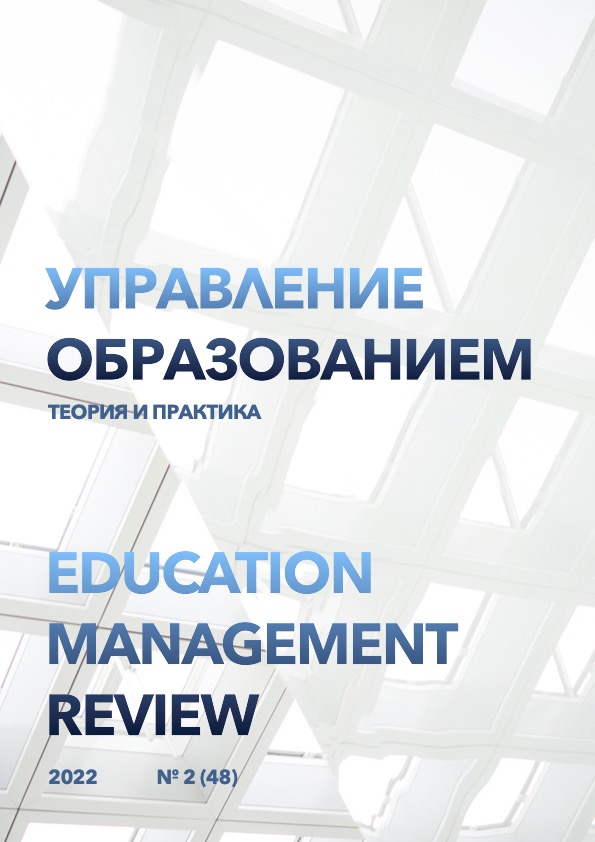Information security in the educational process
DOI:
https://doi.org/10.25726/e8449-3936-4186--fKeywords:
information security, global Internet, cybersecurity, educational processAbstract
The relevance of this topic is due to the fact that with the development of computer technology, the educational process is actively introducing information technology. Shortcomings in the classical methods of iinformation protection are revealed: antiviruses, access checks, software protection and more. In this regard, it is necessary to develop new models, methods and technologies for protecting the information of students using the global Internet.
References
Акимова Л.A., Лутовина Е.Е., Пак Л.Г. Обеспечение безопасности в образовательных организациях: теория и практика : учебное пособие. Оренбург: Издательско-полиграфический комплекс «Университет», 2019. 199 с.
Бузыкова Ю.С., Зуфарова А.С Роль информационно-коммутативных технологий в профессиональном образовании // Современное педагогическое образование. 2020. № 9. С. 84-87.
Зуфарова А.С. Возможность развития информационно-образовательной среды вуза // Управление образованием: теория и практика. 2020. № 3 (39). С. 81-88.
Carter, M. R. (2022). Unsettling the Settler: An Arts-Based Exploration. Societies, 12(2). https://doi.org/10.3390/soc12020046
Chen, Y., & Yang, Y. (2022). An Advanced Deep Attention Collaborative Mechanism for Secure Educational Email Services. Computational Intelligence and Neuroscience, 2022, 3150626. https://doi.org/10.1155/2022/3150626
da Silva, R., Fontana, G., & Armstrong, M. A. (2022). ‘It’s about keeping children safe, not spying’: A governmentality approach to Prevent in primary education. British Journal of Politics and International Relations, 24(2), 259–276. https://doi.org/10.1177/13691481211021212
Gamage, S. H. P. W., Ayres, J. R., & Behrend, M. B. (2022). A systematic review on trends in using Moodle for teaching and learning. International Journal of STEM Education, 9(1). https://doi.org/10.1186/s40594-021-00323-x
Gupta, S. (2022). Private blockchain-cloud system (PBCS) for healthcare services. International Journal of Software Innovation, 10(2). https://doi.org/10.4018/IJSI.289602
Kaplan, G., Mart, S., & Diken, I. H. (2022). Transition to school process of children with disadvantages: A literature review*. Journal of Childhood, Education and Society, 3(1), 28–47. https://doi.org/10.37291/2717638X.202231106
Li, F., Xue, Q., Xu, S., & Wang, T. (2022). Application of New Technology in Education: Design and Implementation of Graduate Certificate Model Based on Intelligent Graph Element Technology. Sustainability (Switzerland), 14(7). https://doi.org/10.3390/su14073781
Ma, W., Vatsa, P., Zhou, X., & Zheng, H. (2022). Happiness and farm productivity: insights from maize farmers in China. International Journal of Social Economics, 49(1), 97–106. https://doi.org/10.1108/IJSE08-2021-0474
Martos-Garcia, D., Devís-Devís, J., & Sparkes, A. C. (2022). Volunteering for Research in Prison: Issues of Access, Rapport and Ethics and Emotions During Ethnography. International Journal of Qualitative Methods, 21. https://doi.org/10.1177/16094069221086096
Mehta, B. S., & Awasthi, I. C. (2022). Dynamics of Urban Labour Market and Informality. Indian Journal of Labour Economics, 65(1), 19–37. https://doi.org/10.1007/s41027-022-00354-0
Shoaib, M., Nawal, A., Korsakienė, R., Zámečník, R., Rehman, A. U., & Raišienė, A. G. (2022). Performance of Academic Staff during COVID-19 Pandemic-Induced Work Transformations: An IPO Model for Stress Management. Economies, 10(2). https://doi.org/10.3390/economies10020051
Topuz, A. C., Saka, E., Fatsa, Ö. F., & Kurşun, E. (2022). Emerging trends of online assessment systems in the emergency remote teaching period. Smart Learning Environments, 9(1). https://doi.org/10.1186/s40561-022-00199-6




